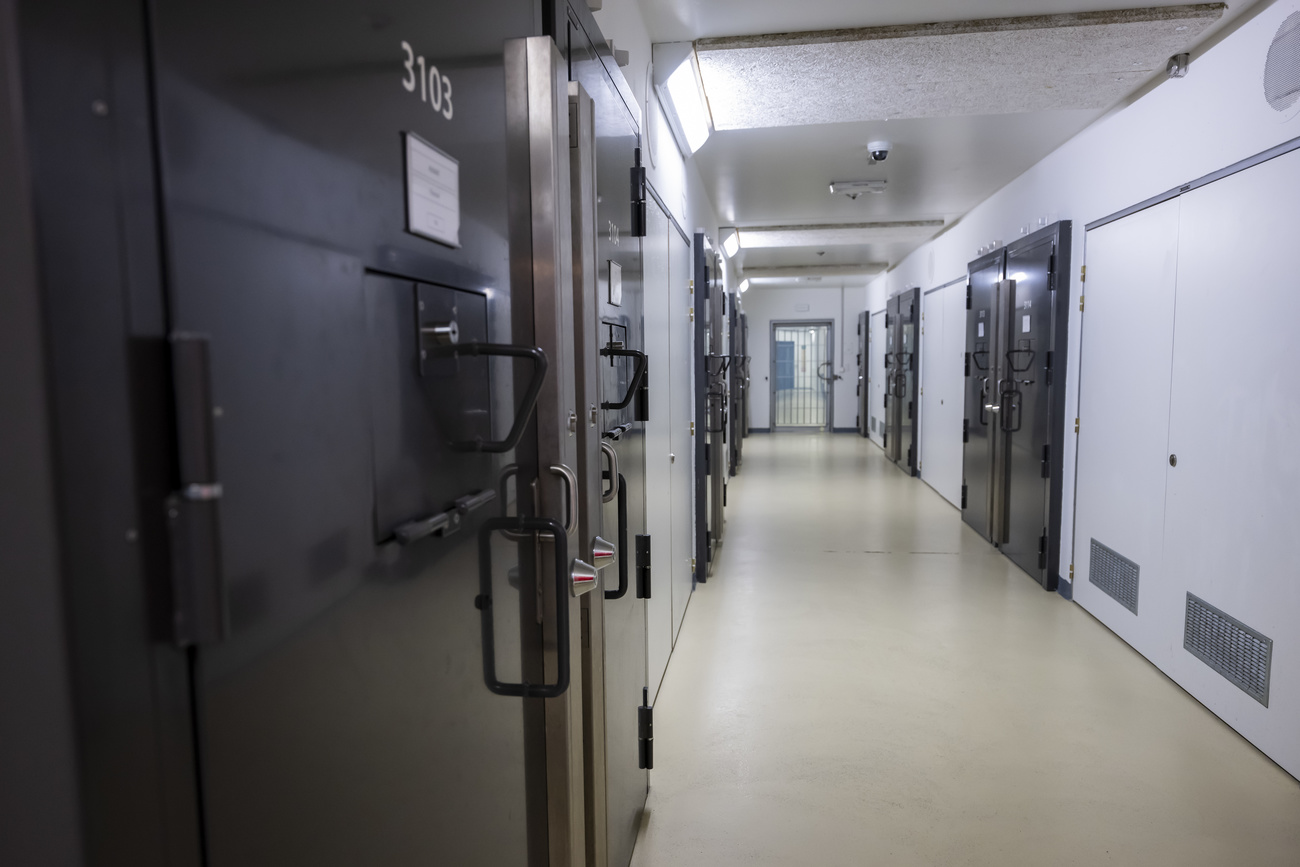
Number of Swiss prisoners rises 7% in one year

At the end of January 2024, 6,881 men and women were behind bars in Switzerland. This is 7% more than a year ago. The occupancy rate has risen to its highest level in ten years.
The number of prisoners is comparable to that before the outbreak of the Covid-19 pandemic. Some 64% of prisoners were serving sentences or other disciplinary measures, as reported by the Federal Statistical Office (FSO) on Monday. Another 30% were in pre-trial detention or preventive detention and 6% were detained for other reasons.
Despite the increase in the number of prisoners in January 2024, the number of available places in prisons remained stable at 7,251 compared to the previous year. The occupancy rate across Switzerland increased by over 5%. On January 31, 2024, almost 95% of all places in Switzerland’s correctional facilities were occupied, the highest number since 2014.
Adapted from German by DeepL/dkk/mga
This news story has been written and carefully fact-checked by an external editorial team. At SWI swissinfo.ch we select the most relevant news for an international audience and use automatic translation tools such as DeepL to translate it into English. Providing you with automatically translated news gives us the time to write more in-depth articles.
If you want to know more about how we work, have a look here, and if you have feedback on this news story please write to english@swissinfo.ch.

In compliance with the JTI standards
More: SWI swissinfo.ch certified by the Journalism Trust Initiative





























You can find an overview of ongoing debates with our journalists here . Please join us!
If you want to start a conversation about a topic raised in this article or want to report factual errors, email us at english@swissinfo.ch.